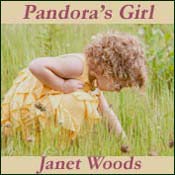THE SINGING MOUNTAIN by Anne E Summers.
www.aneesummers.com
Solstice Publishing - January 2013
1918 – 1940 Set in the mysterious Welsh
mountains, this is the story of Megan a working class girl from a mining town
who falls in love with someone far above her. Ignoring tradition and
disregarding the advice of her family and friends, Megan weds Ian, the wealthy
local landowner.
Soon Megan is expecting her first child,
but the first flush of love begins to be eroded by Ian’s family. When her son
is born it seems to Megan that he’s in danger - something she tries to credibly
articulate, but without success.
She is labeled hysterical, and unstable. Her husband is torn between
wanting to believe her, but is forced to accept the more rational explanation
of doctor and family members. Megan is scared of losing Ian’s love, and the son
she has borne him, and at times she questions her own sanity.
During her lonely walks in the high country
the voice of the mountain calls Megan. Aware of the unusual forces surrounding her
she confides in Alun, a gypsy who befriends her. He relates to her the legend
of Rhiannan, the White Witch, and she understands she has past issues to
resolve before she can find peace in the present. Alun takes her through the
circle of stones into the Otherworld. Time is flexible as they move between
past and present meeting people they’ve known before. One of them is Wil, with
whom Megan shares a deep affinity.
Megan’s marriage settles down as she begins
to understand herself, but twenty years later the repercussions of her
involvement in the Otherworld come back to haunt her when bad magic comes to
threaten everything she loves. Megan has made an enemy that follows her through
time - the White Owl. Raked by its poisonous claws Megan’s life is at a low ebb
when her beloved son Huw, goes through the stones to seek the help of Rhiannan,
The White Witch.
There is nothing contrived about this
novel. A connection is established
with the characters early in the story. The author is Welsh-born, and the
empathy with her heritage through her characters is strong. The Celtic love of
folklore with all its mystery and drama glows through, and the language is evocative
of the time and place. The novel deserves its fine cover.
This is Anne E Summers first published
book. She’s made a fine fist of it. The writing is beautifully lyrical and the
fantasy element is believable - anchored as it is to Megan’s reality. The
dangers encountered in both the Otherworld, and Megan’s present keep the
tensions high. The characters captivate, and their stories raise the emotional
levels.
A highly entertaining story that lingers in
your heart long after you’ve finished reading it.
Janet Woods * * * * *
.jpg)






